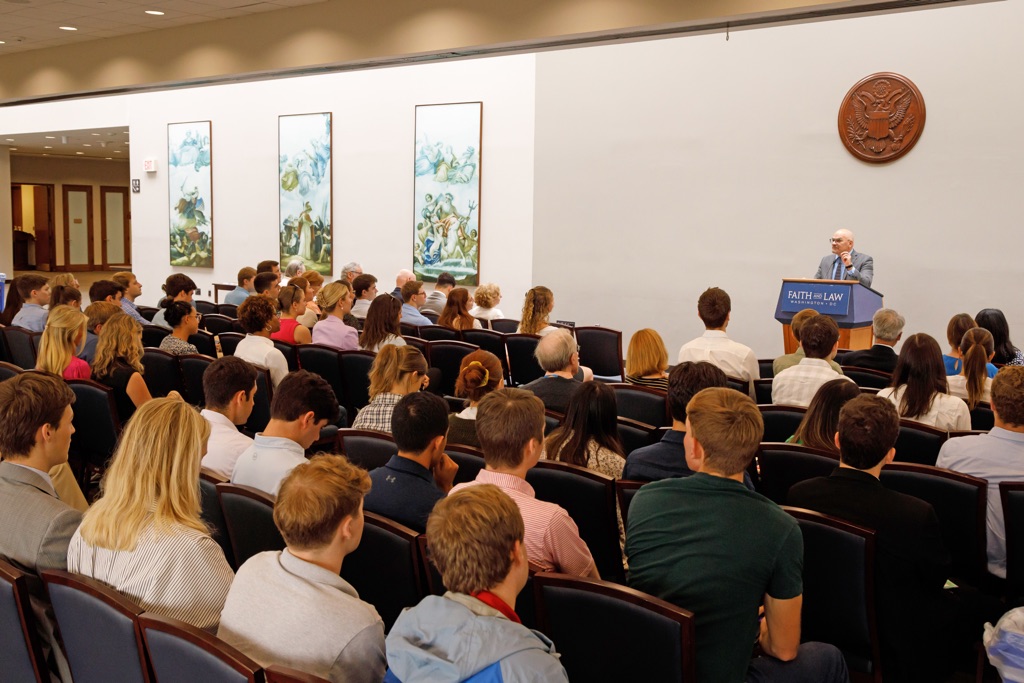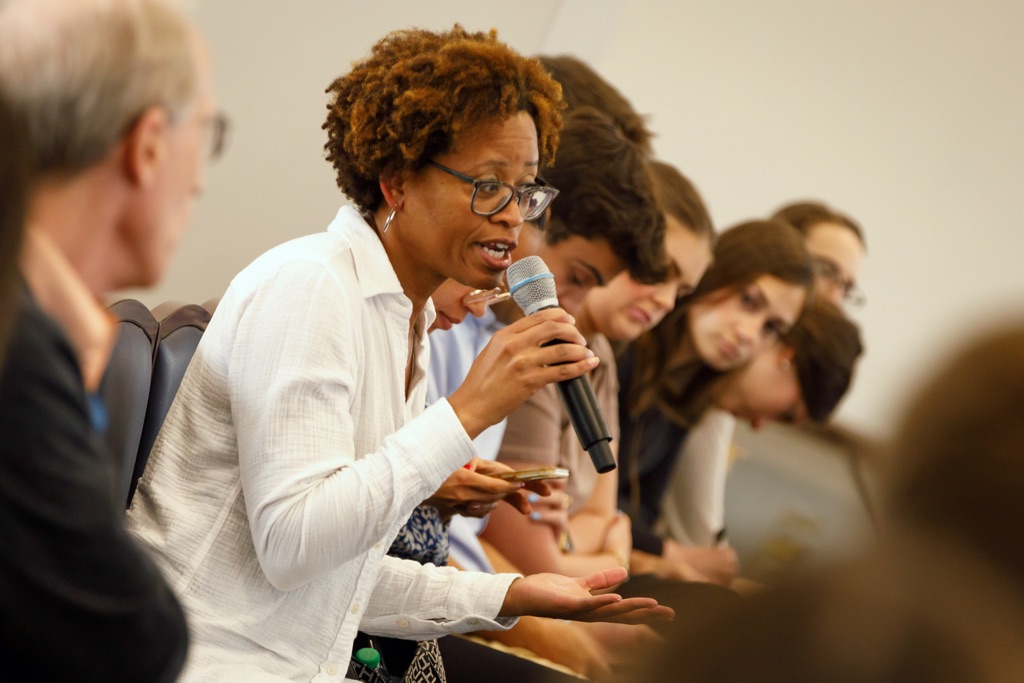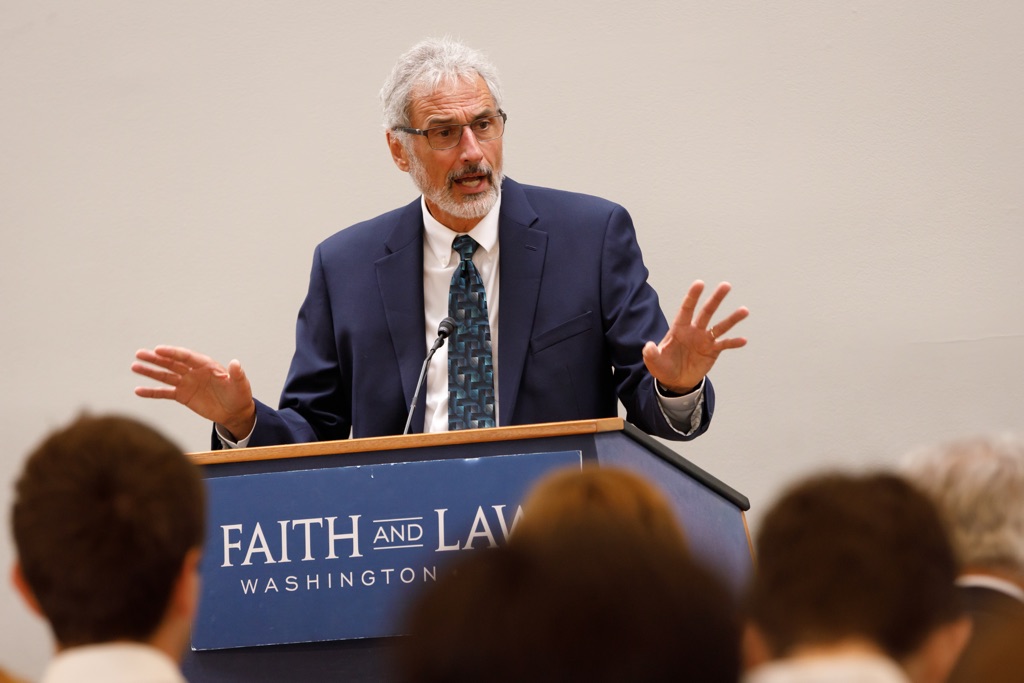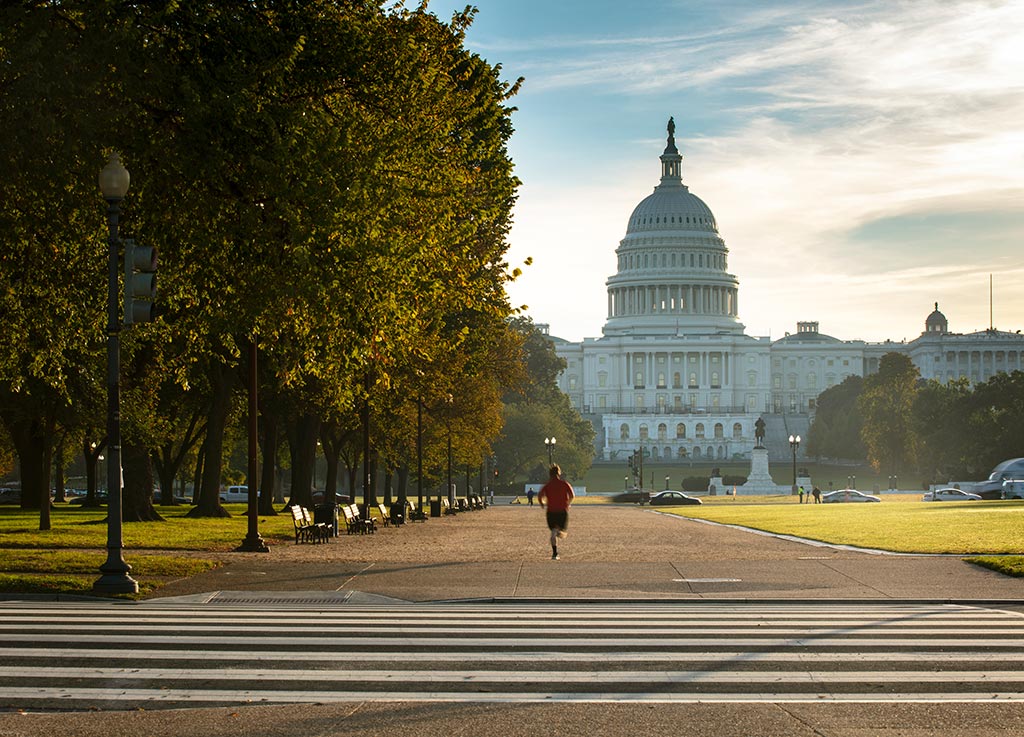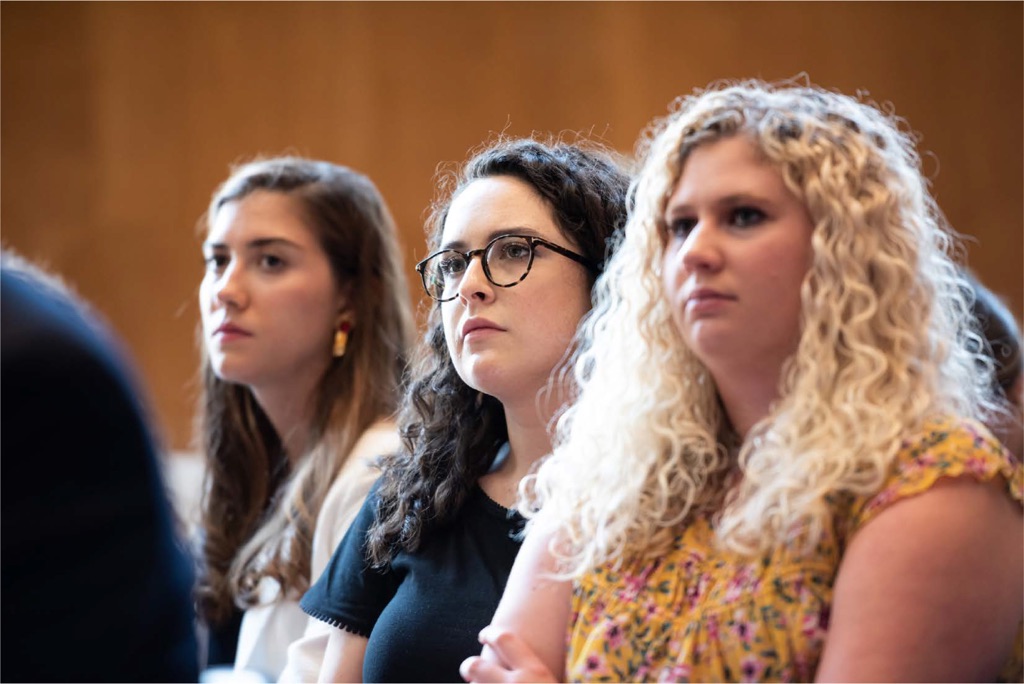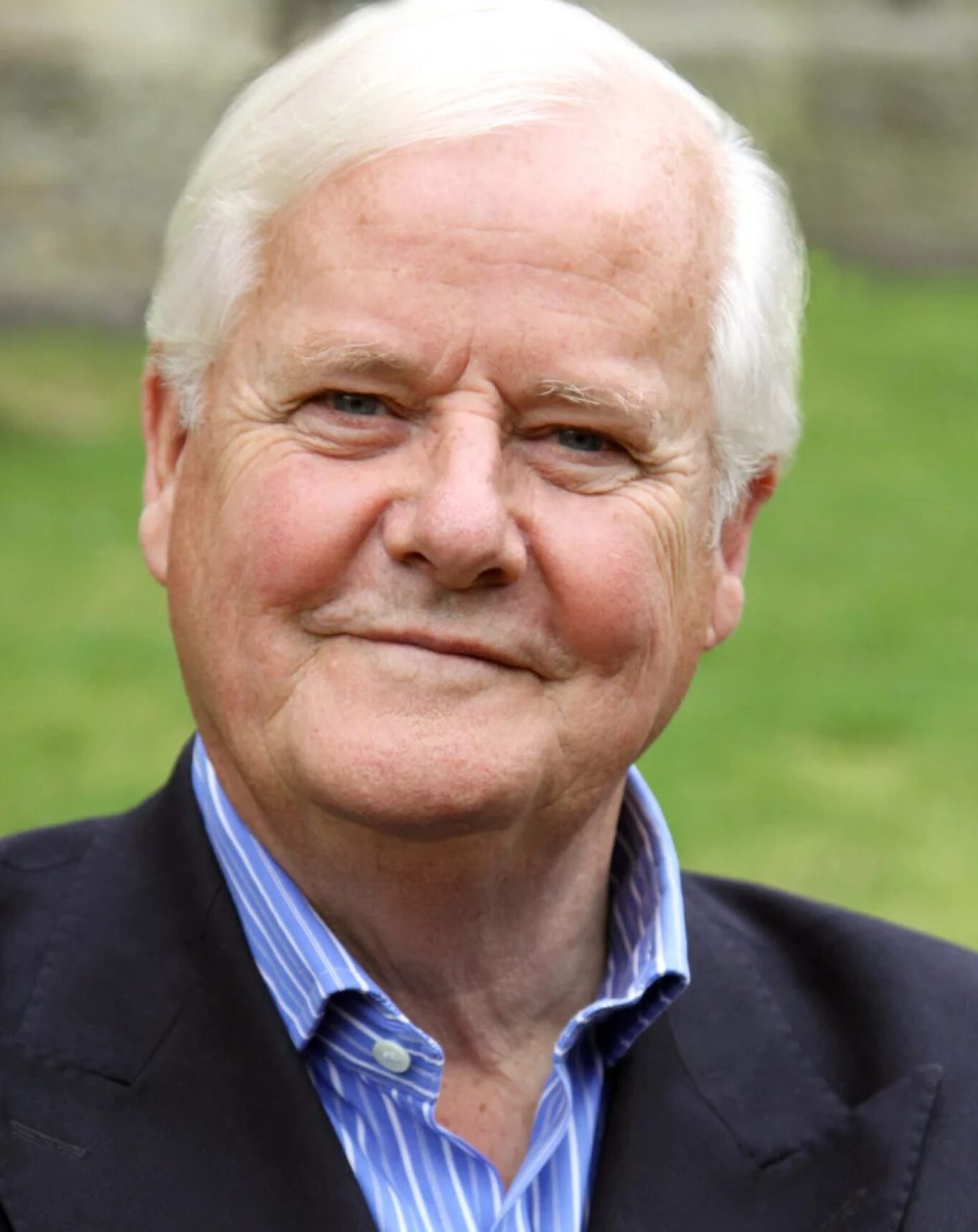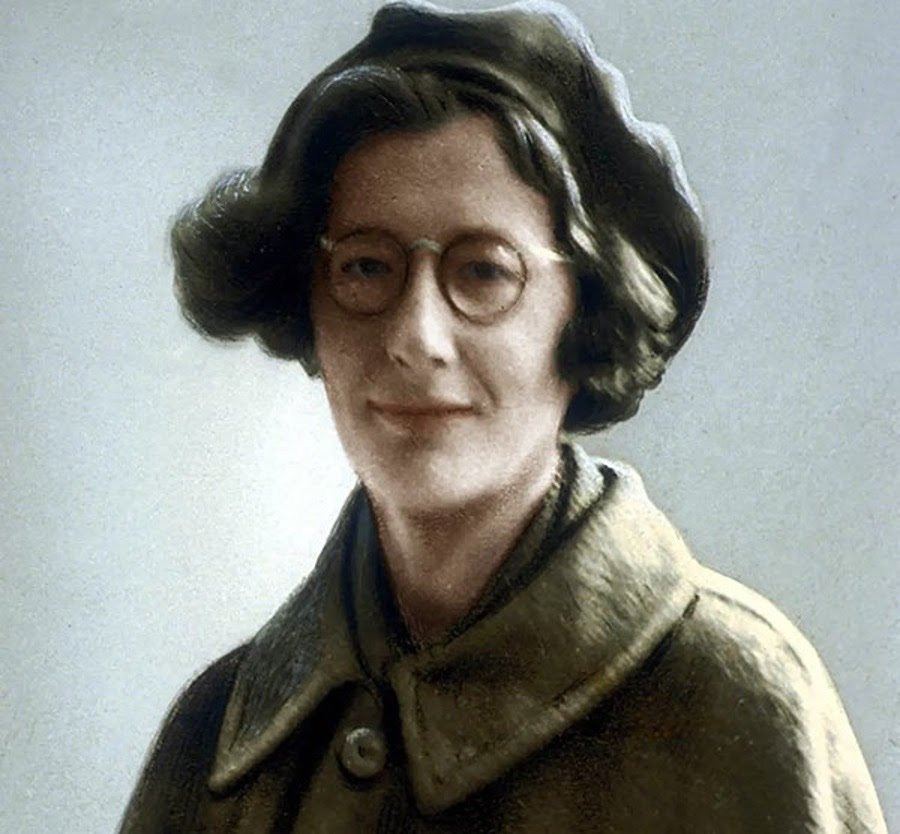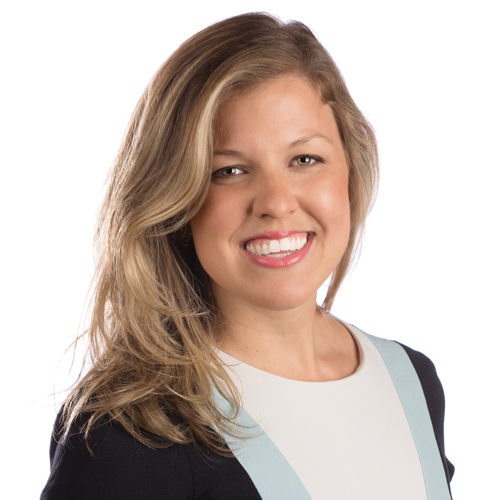Democratization of theology – good or bad?
In a recent Friday Forum, we partnered with the Institute for Human Ecology for a conversation between Dr. Joseph Capizzi, the Dean of the School of Theology and Religious Studies at the Catholic University of America, and New York Times columnist Ross Douthat. Drawing from Douthat’s latest book, Believe: Why Everyone Should be Religious, the conversation highlighted the changes in the religious landscape and present opportunities for a religious revival.
Whereas Americans generally think more democratization is better, in the realm of theology, it can wreak havoc. The reason is due to democratization’s inverse relationship to authority. Today’s popular influencers often are viewed as having more theological authority than the magisterium of a 2000-year-old church.
“The rise of extramural sources of insight into faith are co-existing with an authoritative church that has undermined its authority by its activity. So, there is tension here,” said Capizzi. To study the ancient texts – and attempt to apply them to contemporary issues – takes patience, humility and even a sense of hesitation. These are not the virtues we often find on cable TV or social media!
“The fundamental story of our religious moment is the impulse toward religious revival in almost total evacuation of authority – most clearly in Catholic but also in Protestant circles,” said Douthat. “People are coming to the most profound religious questions – and almost completely fresh.”
The resurgence in American spiritual hunger takes many forms, ranging from “antique” forms of Christianity, such as Latin Mass, Anglican liturgies, Eastern Orthodoxy and “trad” culture, to the creation of an AI-induced metaverse or even psychedelic experiences. Douthat described “wokeism” as a “post-Protestant moralism that drew on Christian sources without Christian orthodoxy.”
“There was deep religious or quasi-religious energy, but there was no locus of authority there – there was no God, and also no explicit church structure. [So] it had to inhabit the older institutions of the American elite, the Ivy leagues and foundations…to conjure a cultural consensus into being. It succeeded very powerfully for a very brief span of time, and then under pressure and under its own contradictions it seemed to dissolve.”
Democratized theological authority also has political side-effects. The two discussed the growing political disregard for the Catholic church’s teachings on issues ranging from abortion to immigration. “Political loyalties are just stronger than theological loyalties, said Douthat. “It’s [a trend that] has been building for a long time.”
The author concluded with a stirring call to Capitol Hill staff to “reserve something for Christ” in their work:
“When you are engaged in politics you should have at least one area that matters to you, that is important to you, a policy area where, because of your Christianity, you are at odds with your co-partisans. You have to assume as a Christian in politics that there are going to be places where your coalition is wrong and is at odds with what God wants.
“So, make it your business to find one such place and take an interest in it. Try to make it some kind of priority so that you always know that you are reserving something for Christ in your service to the Caesars of our coalitions.”
Amen and amen. Thank you, IHE, for sponsoring this thought-provoking conversation. Faith and Law shares your commitment to careful theological reflection and its humble application to the complex issues of our day.
Faith and Law is a non-profit ministry started by policy makers and for policy makers.
